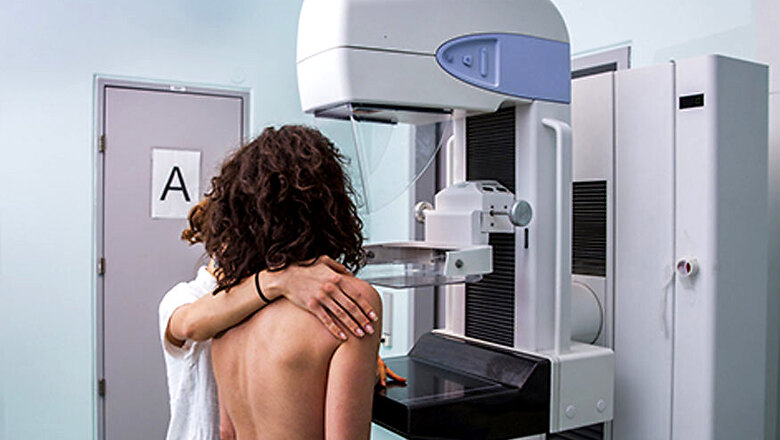
views
An extensive American study, published in the journal Breast Cancer Research, has found that fine particles from air pollution may increase breast density in women, a well-established risk factor for breast cancer.
New American research, based on nearly 280,000 women screened between 2001 and 2009, found that those living in areas with high levels of fine particles from air pollution had a 20% greater risk of having dense breasts, a major risk factor for breast cancer.
Breast density, measured by mammography, reflects the relative amounts of tissue types in the breast. Dense breasts contain a higher percentage of fibroglandular tissue which can obscure mammography and make it difficult to identify abnormalities like tumors.
Breasts with higher density levels contain less fatty tissue and more connective and glandular tissue. High breast density is associated with a four-to-six-fold greater risk of breast cancer.
The researchers found that every one unit increase in fine particle concentration (PM2.5) increased a woman's chance of having dense breasts by 4%.
Moreover, women with less dense breasts were 12% less likely to have been exposed to high concentrations of fine particles.
The impact of air pollution on breast density could be explained by the presence of pollutants contained in fine particles and their disruptive effects on hormones, suggest the authors.
On the other hand, the study showed that exposure to ozone reduced women's chances of having dense breasts. In fact, every one unit increase in ozone concentration was associated with a 3% lower chance of having dense breasts. The researchers aren't able to explain this surprising phenomenon at this stage of their research.
The study is available here: https://breast-cancer-research.biomedcentral.com/articles/10.1186/s13058-017-0828-3



















Comments
0 comment